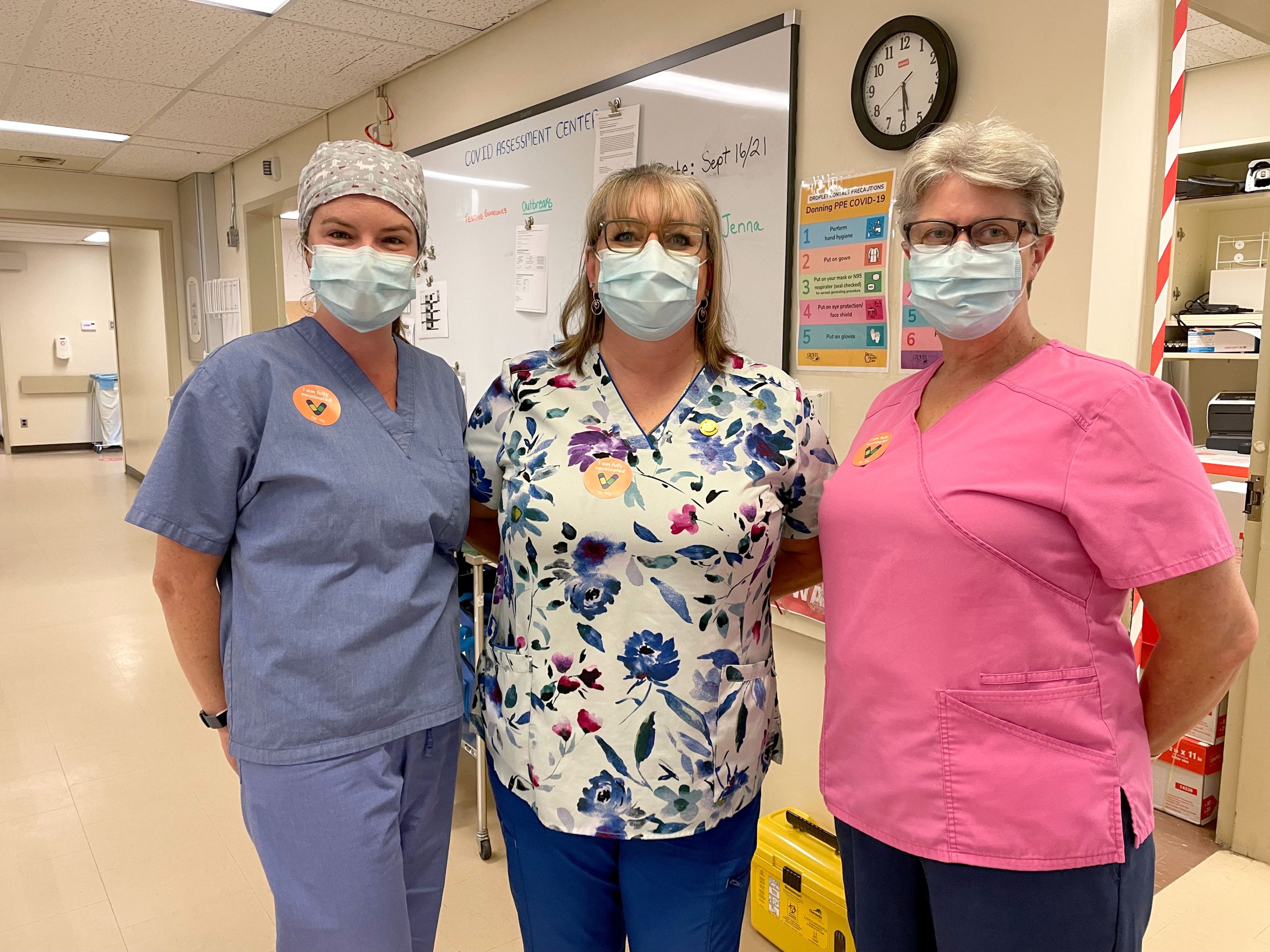WELLINGTON COUNTY – Two years into the pandemic, nurses are continuing to demonstrate their resilience and ability to take on any challenges thrown their way.
“I think the intensity and the prolonged rapid changes is what has been the difference [during the pandemic],” said Kate Kobbes, chief nursing executive at the Wellington Health Care Alliance (WHCA),
“It’s been overwhelming at different stages throughout the pandemic, and the directives have changed quickly and often.”
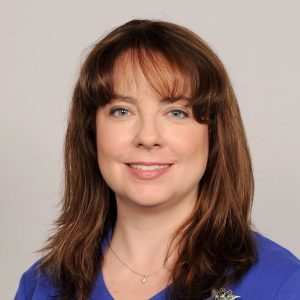
KATE KOBBES
Also vice president of clinical services at WHCA, which operates Groves Memorial Community Hospital, Louise Marshall Hospital in Mount Forest and Palmerston and District Hospital, Kobbes noted healthcare is constantly evolving.
She said that means nurses must embrace new ways of treating patients, and respond to challenges at the local level by quickly adapting and pivoting.
“Pandemic fatigue” has fluctuated amongst staff since the start of the pandemic in March of 2020, Kobbes said, noting many nurses are currently looking forward to summer – because cases tend to subside in warmer weather and also because they’re looking forward to much-needed vacations.
“It’s really important to try to disconnect when you have the opportunity and find some balance in our lives,” she said.
“Many of us have hobbies, participating in groups outside of work, which has helped us to keep feeling balanced and also connecting with people on a social level after prolonged absence of social activities.”
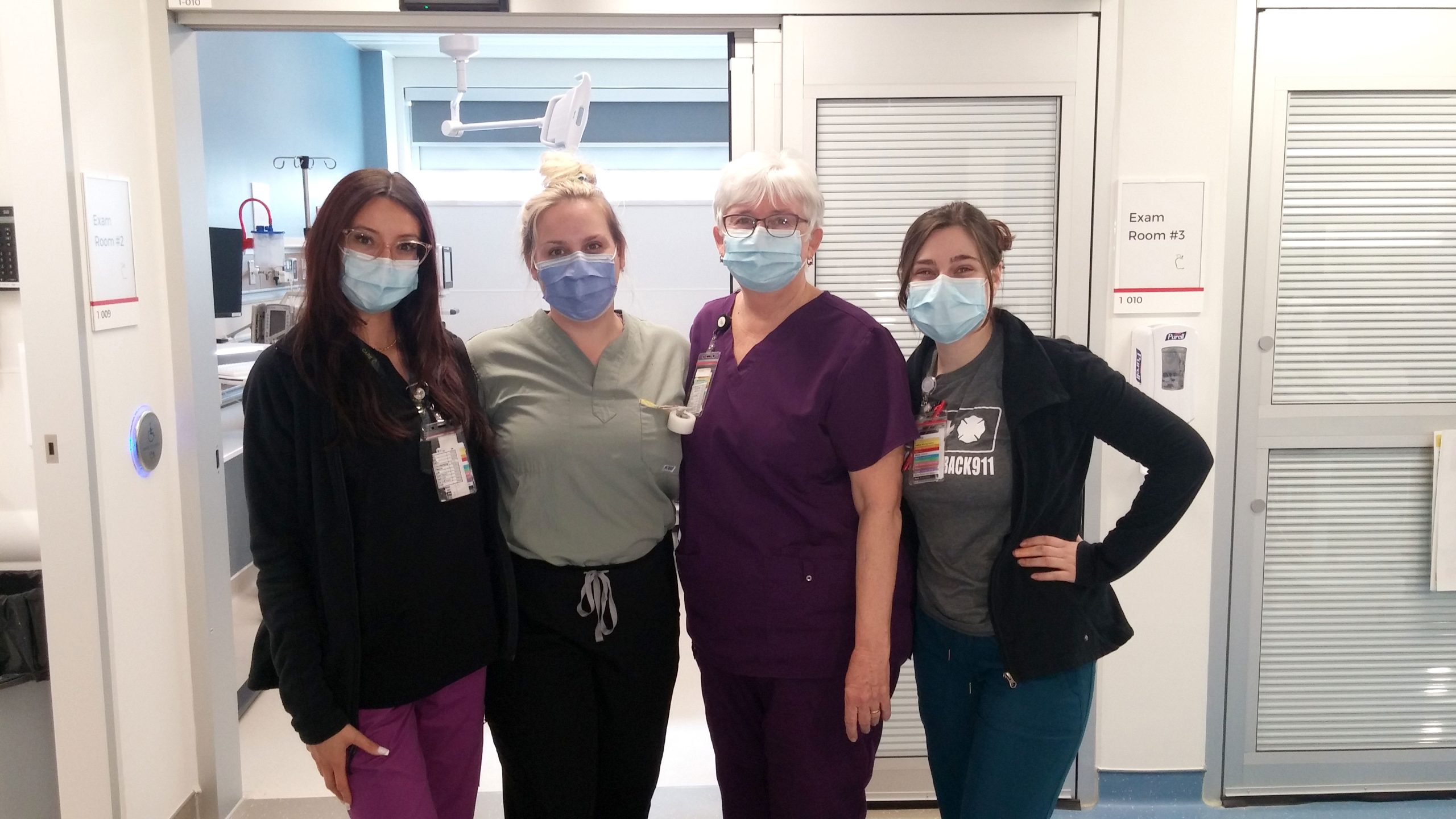
Nursing Week – Nurses from Louise Marshall Hospital from left: Alyssa Belanger, Olivia Douglas, Norma Lamont and Amanda Beadle.
As for what keeps her motivated during this time, Kobbes said it goes back to the reason she first became a nurse: wanting to help people and care for patients.
“I love meeting patients and hearing their stories,” she explained.
“And some of the stories about how nurses have supported patients through this time are really heart touching and keep me going.
“Most patients are very appreciative and thankful for our help and that keeps me motivated.”
Asked how she manages the uncertainty and rapid changes the community has seen with protocol changes, case reporting and other shifts, Kobbes said for her, it’s about collaboration.
“It’s important to stay on top of best practices and partner with our community organizations and ensure that we’re all working together to uphold the standards and do what we can,” she explained.
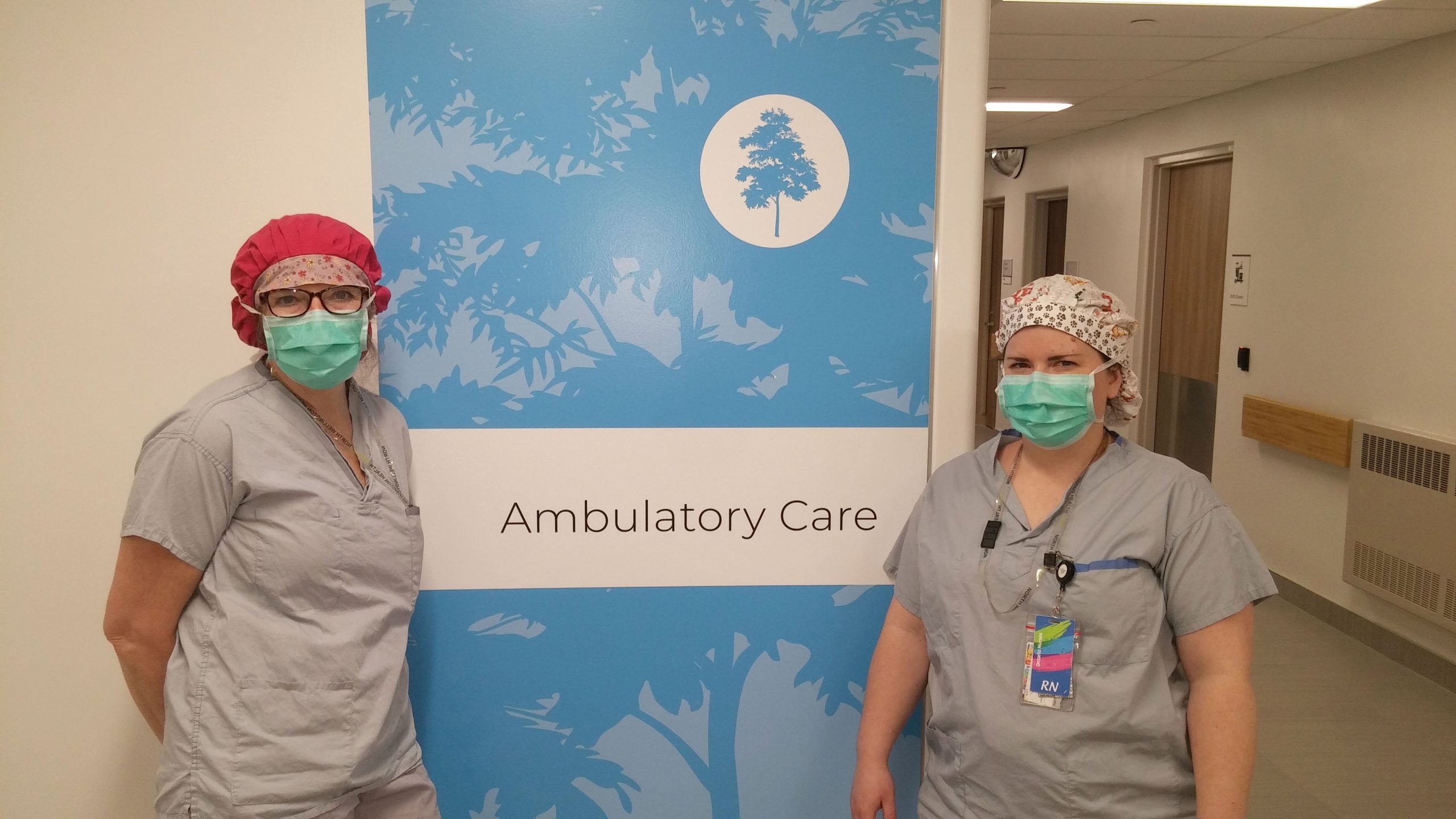
Louise Marshall nurses Gail Bridgwater and Katie Frankland.
“COVID has been a great reminder of what we should all be doing every day, with just washing our hands, often wearing masks and avoiding spreading infection by following the infection prevention control policies.”
Being a frontline worker and witnessing the effects and prevalence of the virus firsthand has equipped Kobbes with a different perspective of the pandemic.
That includes a clear understanding of the need for, and the importance of, public health prevention and infection control measures to help curb the spread of COVID-19.
“It’s affected us in our personal lives and in our work lives and just reinforced that need to be a leader and demonstrate by example,” she explained.
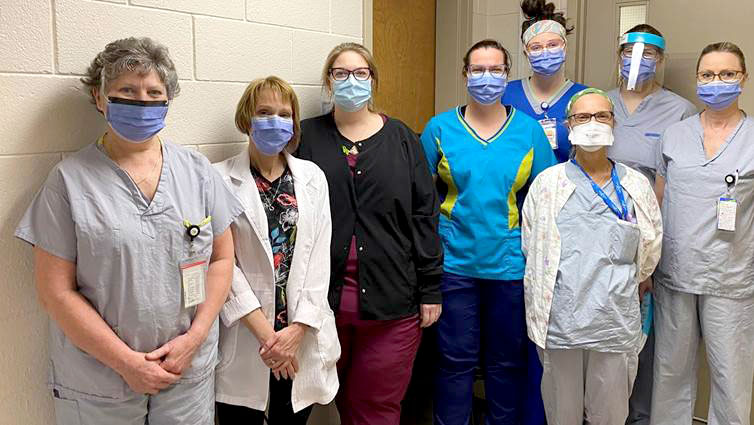
Nurses from Palmerston and District Hospital from left: Leola Hartung, Lori Woestenenk, Amanda Bentley, Katie Olechowski, Reaghen Murphy, Cathy Hass, Krista Klumpenhouwer and Gwen Gould.
As the pandemic dragged on and new preventative measures like vaccinations surfaced, Kobbes said she’s definitely noticed a shift in the public’s approach to the pandemic.
“There’s definitely a divide in the community as to how we approach the pandemic as we go forward and compliance with the guidelines,” she said, adding “our job as a hospital is to protect, care for and treat our patients.
“And so we will always do this with an abundance of caution because we want the best possible outcomes for our patients.”
Kobbes said in the last couple of months, as the hospitals battled the Omicron variant and subvariant, there’s been an increased challenge due to the high volume of staff and physicians off sick due to COVID-19.
“We have managed to cover shifts, however, it’s placing additional stress and strain on the staff that are present, often working overtime and shifts that aren’t traditional for them,” she explained.
“It’s just additional strain. We’re hoping things will calm down with the number of illnesses … That’s kind of a revolving door unfortunately.”
She added, “As things open up in the community and the public health measures ease, people are more exposed to the current strain, causing continual illnesses like COVID illness in our staff.”
With Nursing Week (May 9 to 15) approaching, Kobbes said WHCA wants to recognize and show appreciation for its nurses and everything they do for their patients.
“Nursing is a complex profession that challenges nurses in a physical, emotional, spiritual way that can’t be quantified,” she said. “And their dedication, compassion and kindness does not go unnoticed.”
Kobbes said the past two years have reaffirmed her notion that nurses are very resilient.
“It just reinforces what I think about nurses and that they rise to the occasion,” she said.
“They’re resilient, and they put their patients first.”




